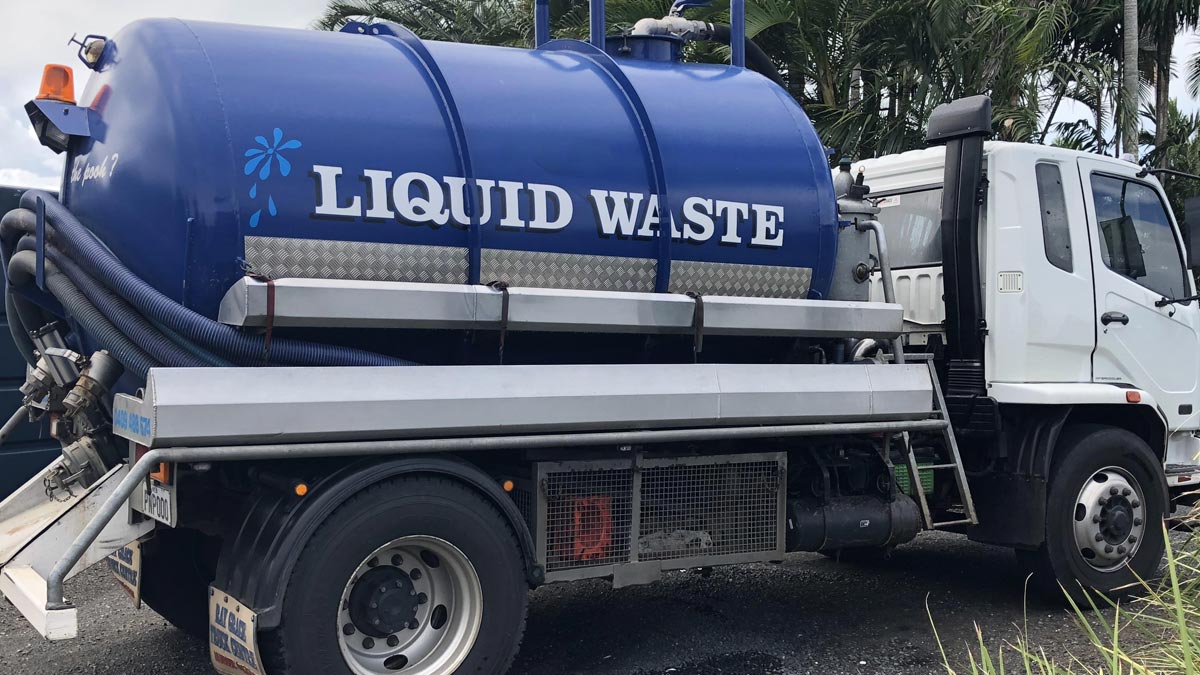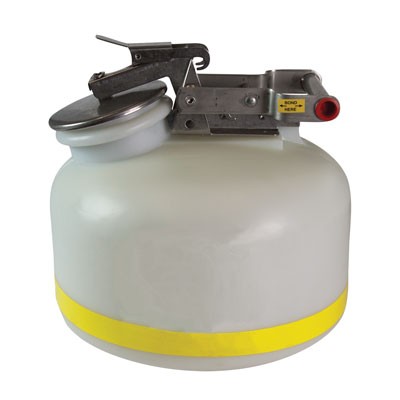Industrial Wastewater Treatment: Advanced Techniques for Effective Administration
Industrial Wastewater Treatment: Advanced Techniques for Effective Administration
Blog Article
Comprehending the Comprehensive Process of Fluid Garbage Disposal: Ideal Practices and Environmental Impact Considerations
The management of fluid waste disposal is a multifaceted concern that needs a complete understanding of various ideal practices and their linked environmental influences. From the types of fluid waste created to the techniques used for collection, treatment, and last disposal, each step plays a critical function in guarding ecosystems and public health and wellness.
Sorts Of Liquid Waste
Comprehending the numerous types of fluid waste is necessary for reliable management and disposal methods. Fluid waste can be extensively categorized into several types, each requiring unique handling and therapy methods.
Industrial liquid waste usually has hazardous materials, consisting of hefty steels, solvents, and chemicals, generated during producing procedures. These wastes necessitate rigorous regulatory compliance to safeguard human health and the environment. Domestic liquid waste largely refers to wastewater generated from homes, consisting of sewage and greywater, which, although much less toxic, can still position considerable threats if improperly managed.
Agricultural liquid waste, including runoff from ranches, frequently has plant foods and chemicals that can cause ecological destruction otherwise dealt with appropriately. Clinical fluid waste, created from medical care centers, consists of infected liquids such as bodily fluids and chemicals, needing specialized disposal techniques to stop infection and ecological contamination.
Finally, oil and grease waste, generally created by dining establishments and vehicle industries, can create extreme blockages in drain systems if not taken care of appropriately. Understanding these categories facilitates targeted techniques for treatment, compliance with laws, and reliable disposal methods, inevitably advertising environmental sustainability and public health security.

Collection Methods
Effective collection approaches are vital for the appropriate administration of liquid waste, making certain that it is gathered safely and successfully before therapy or disposal. Various strategies are employed depending upon the kind of fluid waste produced, the quantity, and the particular characteristics of the waste.
One typical technique is the usage of specialized collection tanks or sumps, which are designed to catch fluid waste at the source. These systems commonly include pumps that help with the transfer of waste to larger storage space containers or treatment facilities. Additionally, mobile collection devices furnished with vacuum cleaner innovation are used in situations where waste is produced periodically or in hard-to-reach areas.
For industrial settings, closed-loop systems can properly reduce leakages and spills, allowing for the recovery and reuse of liquid waste. It is likewise important to train workers on correct collection protocols to reduce dangers related to unsafe substances.
Additionally, carrying out normal upkeep schedules for collection equipment guarantees ideal efficiency and safety and security. The assimilation of advanced monitoring systems can improve collection effectiveness by supplying real-time information on waste degrees and possible hazards. In general, efficient collection techniques are foundational to sustainable liquid waste administration methods.
Treatment Procedures
Therapy procedures play an important role in the management of fluid waste, changing potentially dangerous products right into safe effluents or reusable sources - liquid waste disposal. These processes can be broadly categorized right into physical, chemical, and organic techniques, each tailored to deal with particular contaminants present in the waste stream
Physical therapy techniques, such as sedimentation and filtering, work by removing put on hold solids and particle matter. These techniques are frequently the first step in the therapy chain, successfully minimizing the tons on subsequent procedures. Chemical therapies include using reagents to counteract unsafe materials, precipitate heavy steels, or oxidize organic pollutants, consequently improving the safety of the effluent.
Organic therapy processes, including turned on sludge systems and anaerobic digestion, maximize the all-natural capabilities of bacteria to degrade raw material. These approaches are particularly efficient for wastewater containing eco-friendly toxins. Advanced treatment technologies, such as membrane purification and progressed oxidation processes, are progressively used to accomplish greater levels of filtration.
Incorporating a combination of these therapy approaches not only makes certain compliance with regulative criteria yet also promotes environmental sustainability by recouping beneficial resources from liquid waste.
Disposal Options
Exactly how can companies make certain the safe and accountable disposal of fluid waste? Reliable disposal alternatives are essential for securing public health and the atmosphere. The main techniques consist of land disposal, therapy, and incineration followed by discharge into metropolitan wastewater systems.
Land disposal entails the cautious containment of liquid waste in designated land fills, guaranteeing that it does not leach into surrounding soil or water. Incineration, on the various other hand, topics fluid waste to high temperature levels, transforming it right into ash and gases, which need correct filtering to reduce exhausts. This approach is appropriate for contaminateds materials that can not be treated through traditional methods.
In instances where fluid waste can be treated, companies might select chemical or biological treatment procedures to counteract hazardous components prior to releasing the treated effluent into metropolitan systems. This path normally lines up with regulatory needs, making sure that the effluent satisfies safety criteria.
Eventually, organizations must perform complete evaluations of each disposal option to establish its practicality, considering variables such as waste structure, regulatory conformity, and potential dangers to health and the setting. By choosing appropriate disposal approaches, services can add to a responsible waste monitoring approach.
Environmental Influence
The ecological effect of liquid waste disposal is a crucial consideration for organizations looking for to lessen their ecological footprint. Furthermore, the discharge of without treatment or inadequately dealt with waste into surface waters can result in eutrophication, leading to oxygen deficiency and the subsequent death of fish and other microorganisms.

To minimize these impacts, companies need to embrace finest methods such as applying extensive waste treatment processes, advertising recycling and reuse, and sticking to governing criteria. By taking a positive method to liquid waste monitoring, entities can substantially minimize their ecological impact while supporting sustainable development objectives. Eventually, an extensive understanding of the environmental impacts connected with liquid waste disposal is essential for educated decision-making and accountable stewardship of all-natural resources.
Verdict
Efficient administration of fluid waste is crucial for protecting ecological stability and public health. By taking on best practices in disposal, treatment, and collection, alongside adherence to governing requirements, the possibility for dangerous contamination of environments can be significantly reduced. Constant advancements in technology and procedures add to sustainable waste monitoring efforts. Inevitably, an extensive understanding of fluid waste disposal not only minimizes environmental effects yet also fosters a commitment to accountable source administration and ecological stewardship.
The management of liquid waste disposal is a view it diverse problem that calls for a thorough understanding of different finest methods and their connected environmental effects. From the kinds of liquid waste produced to the techniques utilized for collection, therapy, and final disposal, each step plays an important duty in guarding communities and public wellness.The environmental effect of liquid waste disposal is a critical consideration for companies looking for to reduce their ecological impact. Inevitably, a comprehensive understanding of the ecological impacts associated with liquid waste disposal is essential for educated decision-making and liable about his stewardship of all-natural resources.
Eventually, an extensive understanding of liquid waste disposal not just alleviates environmental impacts but additionally cultivates a commitment to responsible source monitoring and ecological stewardship.
Report this page